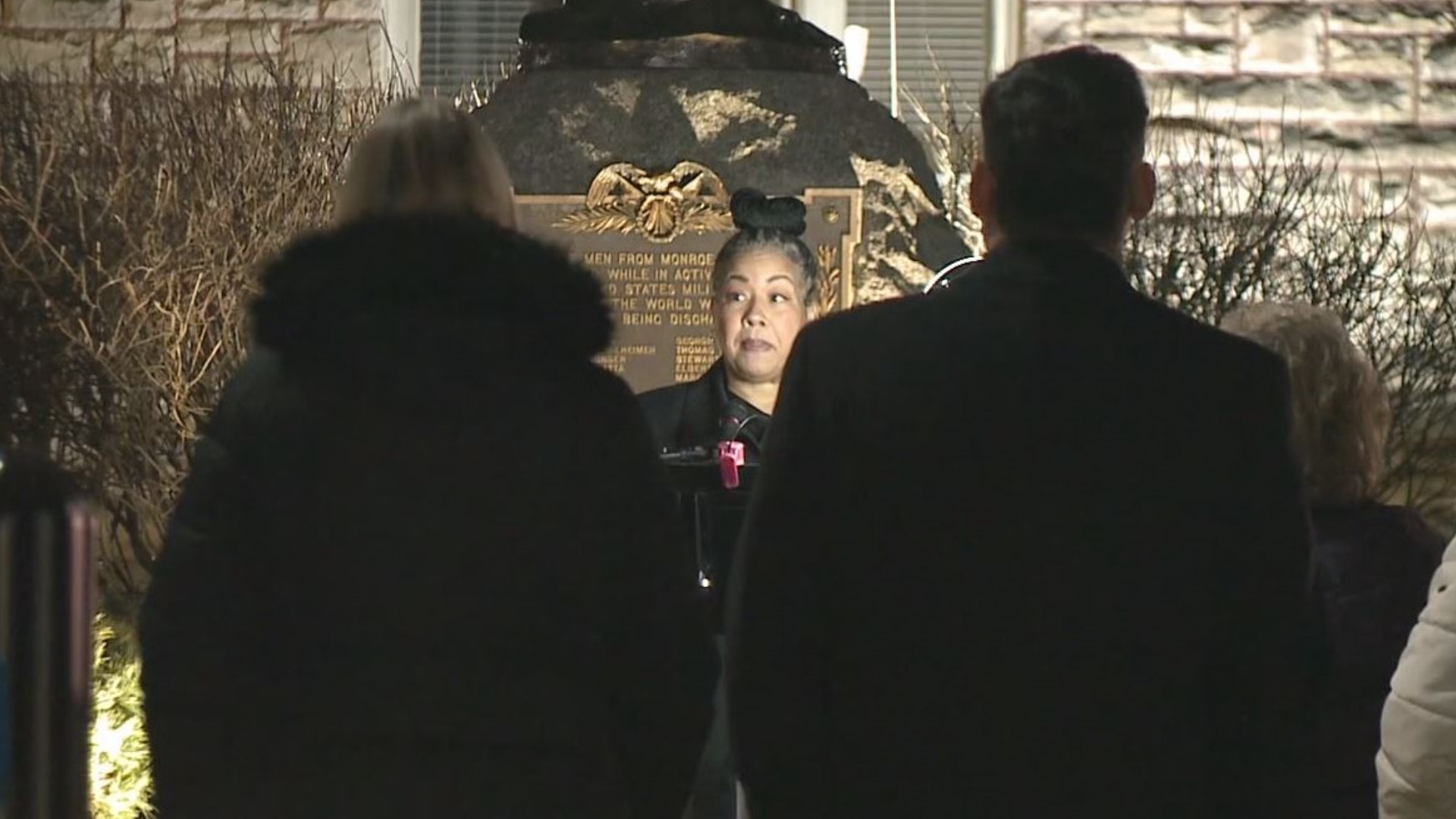STROUDSBURG, Pa. — All through February, we've been highlighting stories for Black History Month. It's a time to acknowledge the accomplishments of people in the black community and also to recognize the people who continue to advocate for change.
Newswatch 16's Amanda Eustice spoke with the president of the Monroe County NAACP, who's doing just that.
Courthouse Square in Stroudsburg has been the grounds for conversation, action, and change in the community, from rallies for justice for all to peaceful protests to community conversations.
Christa Caceres, the president of the NAACP Monroe County chapter, has been at the center of just about all of them.
"We ask you to take a stand with us and push progress forward."
Caceres says that for centuries, African Americans have resisted oppression, fighting for social justice and equal rights.
"Ever since our ancestors were brought here from Africa, there's always been, and obviously from slavery, resistance. Resistance to being someone's property. Resistance to unfair laws and that's the one beautiful thing about our organization. We advocate, we agitate, we litigate, right? So, we will protest when it's necessary, but we also do wonderful things in the community."
Caceres recently organized a vigil in Stroudsburg for Tyre Nichols, a man from Memphis, Tennessee, who was brutally beaten by police and later died.
She says raising awareness about what's going on, even if it's not happening in our backyard, will continue to challenge the system.
"You can be as effective as possible without resorting to violence even though I understand the frustration, right? We all understand the frustration, especially in cases like Tyre Nichols, especially in cases where we feel like there is a systematic push to roll things back for us. But resistance comes in many forms, and we're proud to be the face of resistance."
Caceres was recently named the second vice president and political action chair for the NAACP Pennsylvania State Conference. She will work to hold lawmakers accountable and teach people how to advocate.
"We're going to be assembling a committee of political action chairs from NAACP branches across the commonwealth, and we will determine a plan to move forward, and we hope that will be a guideline, a guidebook, and a resource for the units to be able to mimic that."
Caceres says she wants to make sure progress is continuing to be made for the entire community.
"When I think of Martin Luther King and all of the civil rights leaders back in the 60s who marched in front — yes, they are the face, but it is every single faceless, nameless person that marched behind them. Why? We got those things done, right? (That's) why we're no longer sitting in the back of the bus, why we're no longer getting hosed and, you know, bit by dogs when we're protesting, why things are equal, why black, white, and brown children can sit together in the classroom. It is the community who got behind Martin Luther King, and that's what I want these people in my community to remember."
Cacares believes it's up to the younger generations to continue to stand up for the movements that have advocated for the black community.
See more Black History Month stories on WNEP's Youtube page.

